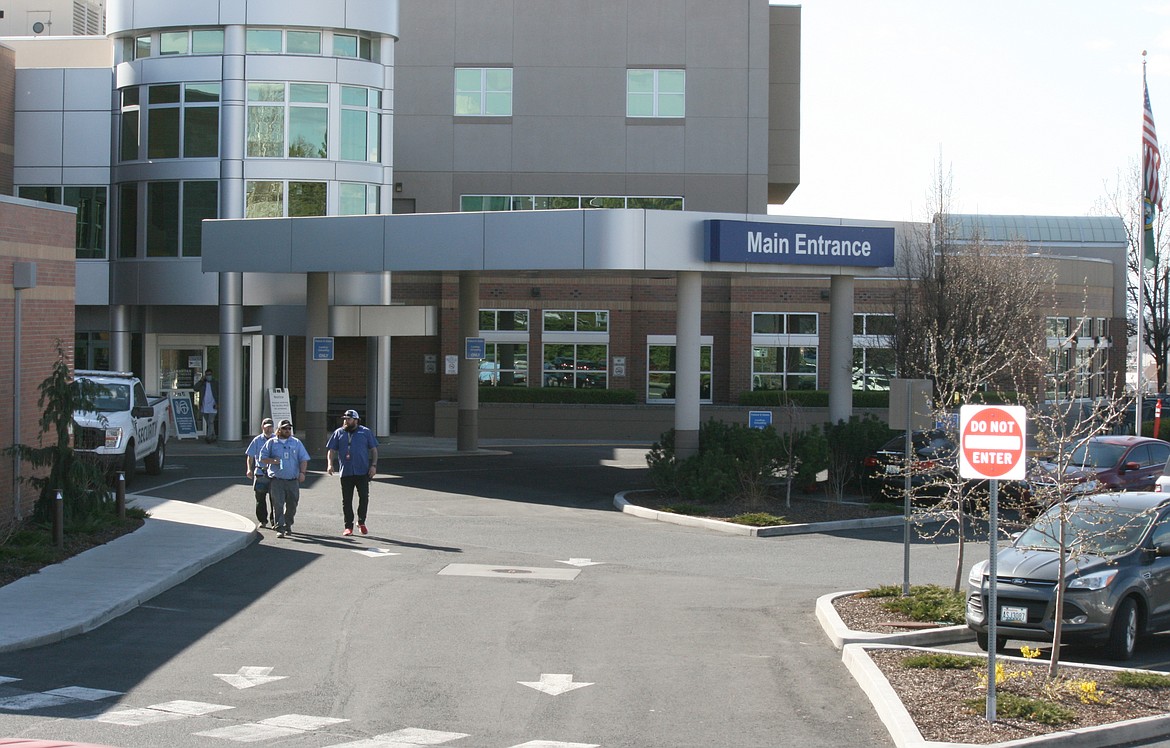Samaritan Healthcare ends 2021 in the black
MOSES LAKE — The effects of the COVID-19 pandemic continue to make themselves felt, including financially. Samaritan Healthcare finished 2021 in the black, but chief administrative officer Alex Town said the pandemic had a substantial impact on hospital operations.
“Last year was tough,” he said.
Samaritan finished 2021 with $4.4 million in net income, compared to $5.2 million in 2020 and $7 million in 2019, the last pre-pandemic year.
Surgical admissions for the year were 30% lower than the projection in the 2021 budget, according to information presented at the Feb. 22 hospital commission meeting. That was mostly the result of the postponement of elective surgeries, Town said.
“When you start taking away those elective procedures, financially, the organization takes a pretty significant hit,” he said.
While outpatient revenues were 3% lower than the budget projections, inpatient revenues were close to the budget projection. That reflected a 23% increase in medical admissions and a 5% increase in obstetrics admissions.
The pandemic had a twofold effect on elective surgical procedures, Town said.
“When that last wave (of COVID-19) hit, every organization had a significant amount of staff that were out due to illness,” he said. “And when you’re already staffed very tight, you take out even a handful, it really ripples through the whole organization.”
Hospital staff members who were working in surgery had to be reassigned to other jobs.
“So what you ended up doing is closing your surgery department down and reallocating those staff to the floors to take care of our ICU and (medical-surgical) patients,” Town said.
Town said many of the patients admitted to the hospital stayed longer than patients had historically.
Many of those patients had put off going to see a doctor, physician assistant or nurse practitioner due to the disruptions in the health care system caused by the pandemic.
“You go to your (primary care provider) to maintain your health, to keep you on track. And they prevent you from going to the (emergency room) and getting sicker. But now, patients delayed care, they didn’t see their (primary care provider) and their health got out of line. They ended up getting sicker,” he said.
That was especially a problem for people who had chronic conditions.
“Those individuals that typically need to see their primary care provider more frequently, when you cut (the number of visits) down, it catches up with the patient eventually,” he said.
The pandemic prompted state officials to restrict services to make room for an anticipated wave of coronavirus patients. Substantial numbers of coronavirus patients did require hospitalization eventually, but not in the beginning, and that too had an effect on staffing.
“We didn’t have enough COVID patients, but we had plenty of staff because we were shutting down services,” he said. “A year later, now it’s the reverse – you had all these COVID patients. Not only did you have COVID patients, you had sicker patients that didn’t have COVID. And then you had to reallocate staff to make sure we took care of those patients.”
Samaritan lifted all restrictions on elective surgeries this week. However, patients who deferred surgery must be scheduled along with new patients.
“You have a lot of patients who are backlogged,” he said. “You’re still trying to keep current with current patients. I really hope this year that we can play some catch-up and get back on track.”
Cheryl Schweizer can be reached via email at [email protected].

